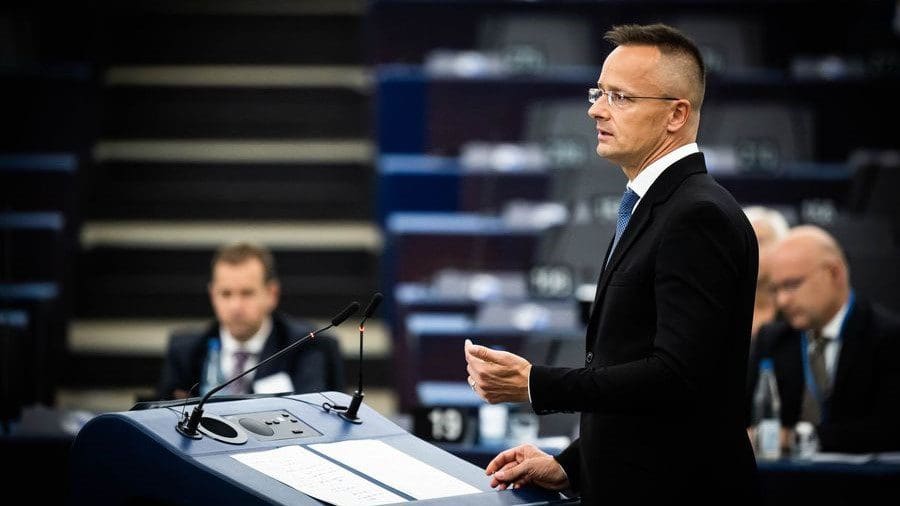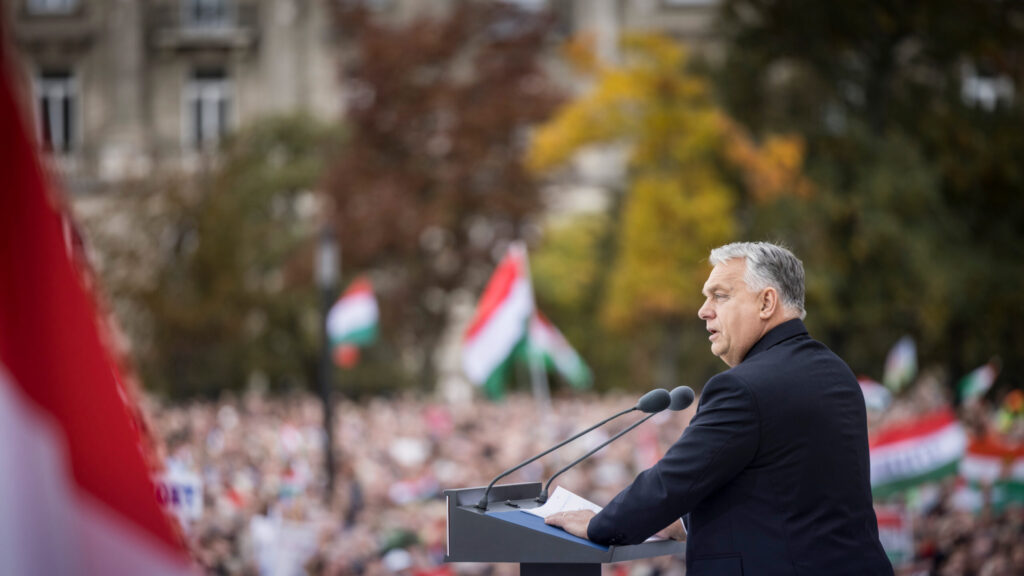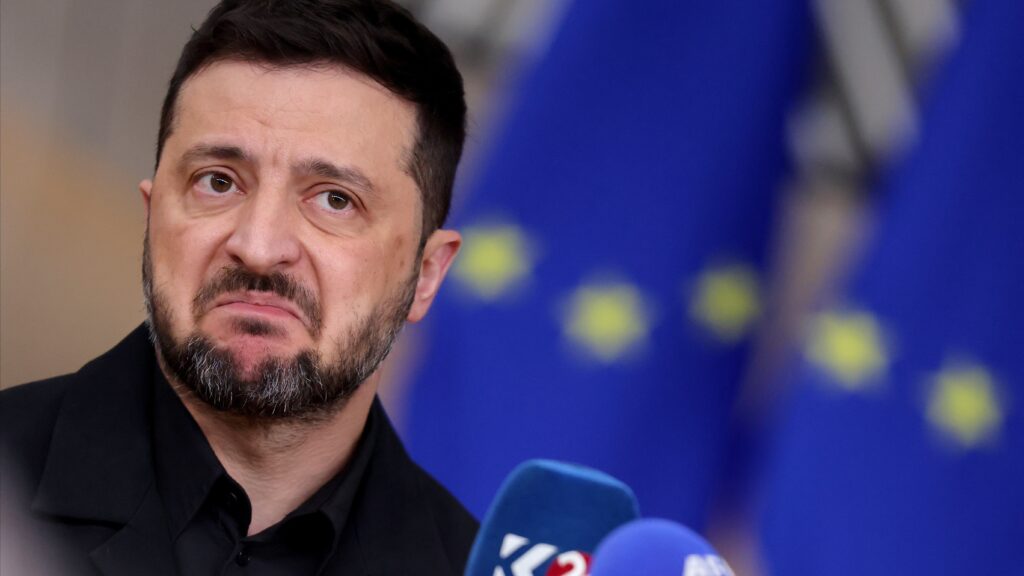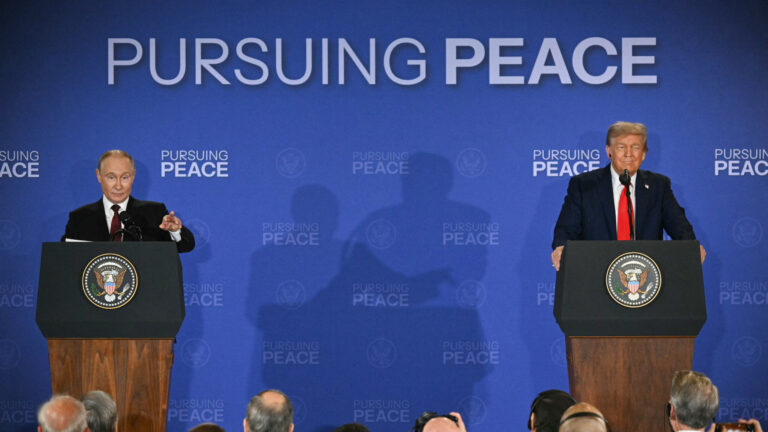The video recording of a recent heated exchange between the Hungarian foreign minister and a Ukrainian member of the Parliamentary Assembly of the Council of Europe has gone rather viral in Hungary. Minister of Foreign Affairs and Trade Péter Szijjártó shared the video on social media, commenting that he ‘had to set certain things straight’ in his response.
The minister certainly did not mince his words when he responded to the harsh criticism of the Hungarian government voiced by Ukrainian representative Yuriy Kamelchuk at the recent session of the Parliamentary Assembly of the Council of Europe. The Ukrainian politician posed questions to the foreign minister on a number of themes, all related to the Russo-Ukrainian war.
Kamelchuk began by drawing a parallel between the 1956 Hungarian revolution and the early stages of the war in Ukraine. ‘In Hungary during the course of three days in 1956, the Soviet troops caused more than 2,600 fatalities and close to 20,000 injuries. Perhaps you anticipated the same situation in Kyiv,’ Kamelchuk declared.
Szijjártó refuted the idea that a parallel could be drawn between the two events:
‘In 1956, my country was run over by the Soviet Red Army. At that time the whole Western world looked on as [the revolution was]…happening in Budapest and Hungary. Every kind of support was promised. Radio Free Europe circulated the biggest ever fake news in our media history saying that the Americans are round the corner to come to help us.
No one came to help.
And then my country stayed under Soviet occupation until 1990. And the whole European continent was very comfortable with that. Until 1990 we did not receive any kind of support, no voice was heard that Hungary should be a free and sovereign country,’ Péter Szijjártó stated.
Ukrán képviselő 1956-ról és napjainkról. Pár dolgot helyre kell tenni… | By Szijjártó Péter – Facebook
Ukrán képviselő 1956-ról és napjainkról. Pár dolgot helyre kell tenni…
Kamelchuk also demanded an explanation as to why Hungary had stopped the payment of the next instalment of military aid from the European Peace Facility (EPF) to Ukraine. In his reply, the Hungarian minister reminded that Ukraine has put the largest Hungarian bank on their list of international sponsors terrorism, erroneously suggesting that the Hungarian bank enables the Russian war machine. Szijjártó noted:
‘The only thing we asked from the Ukrainian authorities—in order to enable us to let the proposal regarding the EPF through in the European Union—
was to remove this bank from this list…
And this very simple request has not been heard by your authorities. I’d like to ask you to help us and remove the number-one Hungarian bank from this list where it’s totally unfairly listed and then we will be happy to come back to this question.’
The Ukrainian representative also accused Hungary of ‘blocking anti-Russia sanctions.’ Szijjártó resolutely rejected the allegation, stating that Hungary has not vetoed any sanctions so far. He added, however:
‘We have also made it clear that since the Hungarian people are not responsible for this war,
we will not let the Hungarian people pay the price for this war.
So therefore, when it comes to the security of energy supply, we would never agree to any sanctions which would endanger that.’
Kamelchuk also found fault with the way Hungary went about the recent transfer of Transcarpathian POWs to Hungary, which was mediated by the Russian Orthodox and the Hungarian Catholic Church. The Ukrainian politician demanded to know why Ukraine had been excluded from the negotiations and when the soldiers in question would be permitted to return to their families.
‘I think it’s good news that they are free. There were discussions between church and religious organisations where the state of Hungary was absolutely not involved. Based on this agreement, these people were let go free. And they are free people, they are free in their movements in Hungary, they can do whatever they want to do, and if they would like to get in touch with Ukrainian authorities, they are free to do so. I can guarantee this to you,‘ Minister Szijjártó concluded.
Related articles:







